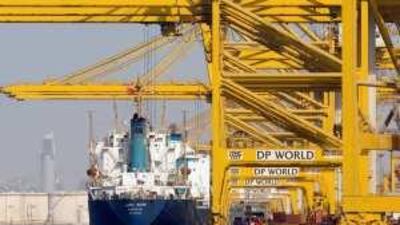Dubai World revealed the results of a restructuring effort that it says will save US$800 million (Dh2.93 billion) in three years as the emirate strives to reduce a debt burden of more than $80bn. Analysts hailed the company's restructuring, which may provide a template for further cost cutting, as a sign of tangible progress in adapting to changed economic circumstances. But they cautioned that more changes, and possibly sales of major assets, might be on the way. "It's an indicator of how tough the situation is and I don't think we're out of the woods yet," said Saud Masud, a senior analyst at UBS in Dubai. "They're trying to right-size the business, given the market expectations. It's a long process and it's the right thing to do." The restructuring, which eliminated 12,000 jobs and reduced the firm's global workforce to less than 70,000, has been in the works for over six months. Rothschild, the British investment bank, and the turnaround firm AlixPartners have been advising the company on the realignment. The changes make Dubai World a far leaner company and put it at an ideal size to emerge intact from the global economic downturn, a source close to the company said. But the shifts in Dubai World's business may not be over. While it was holding on to key assets for now, it would be open to selling many of them should global markets recover and asset prices improve to a point where profits were possible, the source said. Dubai World owns a wide range of prize assets worldwide, including the luxury retailer Barneys New York, and analysts have speculated in recent months that the company might try to wind down or sell Istithmar World, its investment arm. Whether or not the company makes more changes, Andrew Tarbuck, a corporate partner at Latham and Watkins in Dubai, said the announcement of the restructuring was a welcome sign of transparency from Dubai World, a government-owned company that has no obligation to disclose details about its operations. "This shows good transparency from the Dubai Government, to indicate to the world that it is addressing its restructuring requirements," Mr Tarbuck said. "For some commentators and stakeholders this news could not come soon enough, but it demonstrates that considerable thought has been taken by the interested parties to ensure that they have got it right." The restructuring announcement comes as Dubai World and its subsidiaries, which include the ports operator DP World, the property developer Nakheel and Istithmar World, face maturing debt repayments. The credit ratings agency Standard & Poor's (S&P) yesterday estimated that Dubai and its government-linked companies owed between $80bn and $90bn, and that about $50bn of this total would come due in the next three years. Most urgent among Dubai World's debt concerns is Nakheel's $3.5bn Islamic bond, which is due to be repaid in December. But the restructuring at Dubai World, which includes moving retail property assets from Nakheel to a new division called Retailcorp World, does not yet appear to have had a major effect on investors' perceptions of the firm's ability to repay debts. While the company is projecting it will save $800m in three years, the price of its $3.5bn sukuk eased downwards slightly yesterday on the news. That, some analysts contended, was a sign that while the restructuring may put Dubai World in a stronger position for the long term, it did not fully address its short-term liabilities. "I think that in terms of a longer-term strategic initiative, it hits the right points and has been along the lines of what we've been hearing from Dubai World," said Abdul Kadir Hussain, the chief executive of Mashreq Capital in Dubai. "But in terms of debt repayment and deleveraging, not only of the Nakheel sukuk but also the other debt, it's still a bit short on clarity in terms of where the cash is going to come from." The Central Bank helped inject cash into the company when it bought $10bn worth of Dubai Government bonds this year, some of the proceeds from which went to Nakheel. A second $10bn bond is planned for the coming months. Government officials have also made assurances that the debt would be repaid, which has helped push the price of Nakheel's sukuk upwards since the summer. The price of insuring against the default of Dubai Government debt has also declined substantially in the past three months, although it is still priced as one of the riskiest sovereign entities in the world. "Anyone who thinks that we're done and dusted and the only way is up, it's a clouded judgement," said Joseph Morris, the Middle East director of Strutt and Parker, a property consultancy. "Some adjustments will still have to be made. [There is] a lot of exposure and a lot of people are sitting on paper losses and not actually crystallising any losses." Credit ratings agencies have downgraded many companies in Dubai this year, and have voiced concern over the emirate's debt burden. Farouk Soussa, an analyst at S&P, said yesterday the Dubai World restructuring was unlikely to have any direct effect on the ratings of Dubai-based companies because it was an organisational one, not a restructuring of debt. "We continue to monitor the situation with respect to the potential restructuring of financial obligations at Dubai World and all other Dubai-based, government-related entities, which would be more material to the ratings we have in Dubai," Mr Soussa said. afitch@thenational.ae agiuffrida@thenational.ae With additional reporting by Bradley Hope

Dubai World has cut 12,000 jobs
Government conglomerate says its restructuring will help it make US$800 million in operating savings.
Most popular today
5
